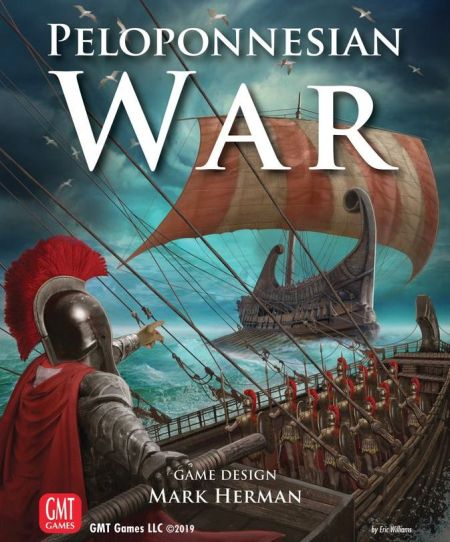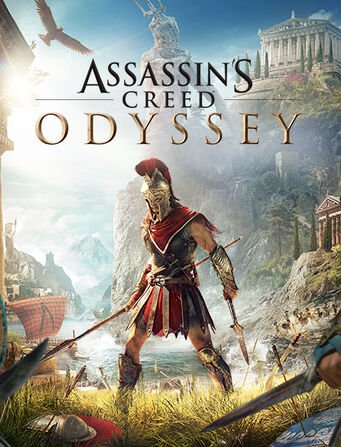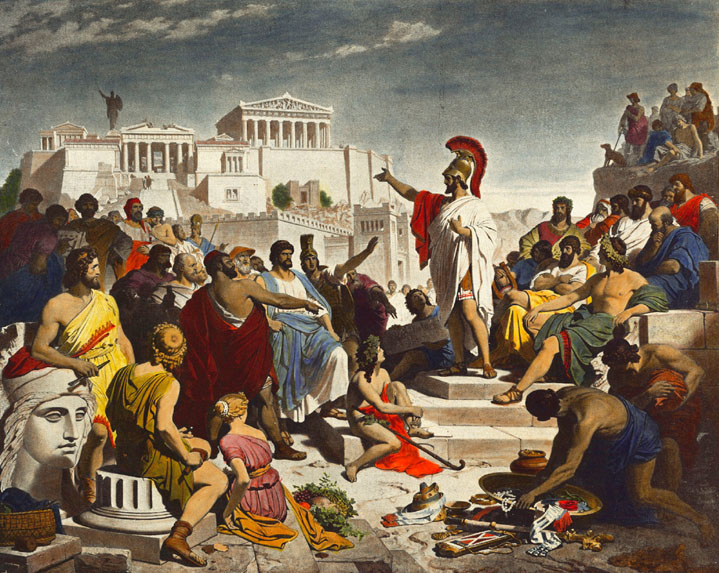In this write-up I am continuing with the series of articles regarding my passion for history, this time focusing on Ancient Greece – especially times of Peloponesian Wars. A very noticeable period and with long-lasting effects on the whole Hellenistic world. One which was always drawing my attention.
Other articles in the series: My passion for History – together through epochs – Europa Universalis IV My passion for History – together through epochs – Hearts of Iron IV
Just to remind everybody, the Peloponesian Wars (First 460–445 BC and Second 431–404 BC) was an ancient Greek war fought by the Delian League led by Athens against the Peloponnesian League led by Sparta. But how did it happen? Only 30 years earlier, both City-States (Athens & Sparta) were ardent supporters and allies, trying to repel the Persian menace – winning at Marathon (490 BC), scarifying at Thermopylae (480 BC) and crushing enemies at Plataea & Salamis (480 & 479 BC).
Well, you may easily say that when there is a lack of common enemy which is uniting its opponents, the alliances break. And if that enemy is cunning and changes it tactic – instead of direct assault, starts to pour the money to one of the belligerents? That is exactly what Persia was doing through most of the 5th century BC – fueling the Spartan naval rearmament program. What is the better way to crush your enemy then from within? And they succeed, oh how well they succeeded….

The Peloponnesian War reshaped the ancient Greek world. On the level of international relations, Athens, the strongest city-state in Greece prior to the war’s beginning, was reduced to a state of near-complete subjection, while Sparta became established as the leading power of Greece. The economic costs of the war were felt all across Greece and were devastating (exactly, what Persians hoped for!): poverty became widespread in the Peloponnese, while Athens was completely run-down, and never regained its pre-war prosperity. At the end of Second War, the main protagonists had seen their military age males reduced by astounding number of more than 65%.
In essence, The Peloponnesian Wars marked the end of the Golden Age of Greece. Athens lost its dominance in the region to Sparta until both were conquered less than a century later and made part of the kingdom of Macedon.
A great history with sad ending – a perfect topic for more exploration! So where do I found more information about that fascinating period of time? Let us see. I am going to share now main sources I am personally using to get more know knowledge in that area.
The Books – Thucidydes & Xenophon’s Hellenica
If you want to learn about something, try at the source. And what would be a better place than the direct reports from the eye-witnesses?

I am of course mainly referring to the father of modern historiography and political thought – Thucydides and supplementary work of Xenophon’s Hellenika. Together, they give a great overview of Second Peloponesian War, with all the details.

Still, reading Ancient Greek – even when translated – can be very problematic when done without context, maps, explanations, filling the gaps based on archaeology findings. Thus I find The Landmark edition as a superb example how to bring ancient texts to the modern readers – it is so thorough, complete, easy to read and follow history. A true beauty. And story itself – a very compelling chronology of both grand strategy events as well as individual feats. What is more, the speeches of main figures in the history are of the greatest educational value. Strongly recommended!
The Lecture – Introduction to Ancient Greek History with Donald Kagan
YaleCourses is a YouTube source of very valuable content, not only as far as history is concerned but also in the other areas of science. I found a lot of interesting materials there but one drawn my utmost attention – Introduction to Ancient Greek History with Donald Kagan:
I am not native English speaker, still I can gain so much knowledge from that lecture. I especially appreciate Chapters 17-20 which describe both Peloponesian Wars – you have all the factors leading to them clearly and crisply described, the exact flow of events as well as consequences. What is more, as this is University Lecture, with not much anything to view, you can listen to it as to the podcast while for example driving. Of course, should you be interested in border period of Greek history, be welcome to familiarize with the all episodes!
The Boardgames
To learn about history is one thing, try to recreate and change it is completely different level of fun! And what better way of doing it than via boardgames! Below some of the titles connected directly to discussed topic which gave me so much joy and allowed immerse myself in the epoch.
Strategic level – “Pericles”

When I would like to play a strategy level game, with political aspect reflecting the above-mentioned conflict, I am reaching for Pericles. You may be aware that I pretty much like this title, and often put articles about it on my blog. It is good to play especially with 4 people, where internal tensions between the factions and external war between City-States fuels the game. A true dilemma is how to balance both things and how to cope with unexpected play of issues. But this is exactly what I like about that game! More about it in my REVIEW.
Operational level – “CC Ancients – Expansion 6” & “GBoH – Hoplite Expansion”

Still, sometimes I would like to go to a lower – operational level – and play a particular battle or skirmish. One of the best wargames I had pleasure to try is Commands Colors Ancients – not overly complicated nor too long, but depicting all major engagements of the interesting period in its 6th Expansion – Spartan Army. What is more, you can play them in a consecutive, chronological order as a part of mini-campaign. I strongly recommend it!

Let us say that you are interested in particular battle but would like to play more deep, complicated and nuanced game then CCA? The Great Battles of History series comes with help – and it Hoplite module. We have here much more characteristics of the fighting units, flanking, rear attacks, armor and position superiority. Still, Hoplite is one of the best examples of the series – almost all battles are concise, with manageable number of units but still with tactical depth. You should definitely try it!
Solitaire experience – “The Peloponnesian War”

Sometimes, especially in times of forced isolation, you have to be satisfied with solitaire play. While many games have such a module, I think the ones created entirely for that mode of play are the best. Peloponesian War – and old classic, re-published by GMT in 2019 – is such an example. It takes a while to get all the nuances and rules to fit the right spot, but once you are through initial learning path, the game is a nice way to spend time, And very, very thematic.
The Video Game – Assassin’s Creed Odyssey
So we familiarized with history thanks to books and lectures, we tried to recreate it flow of events or maybe change them via boardgames. Why not try to see it? Why not try to jump into the ancient Greece the way it was? Crazy idea you think? Maybe, but there is a way to do it!

When I read that the Notre Dame cathedral – after its disastrous fire in 2019 – will be rebuilt with assistance of Assassin’s Creed Video Game – I was intrigued. I knew that series only as a prominent computer game, which has a lot of fans but I was not aware the lengths to which creators of graphical side of the series went.
Then I heard in the 2018 that there will be a new installment – focused on Ancient Greece and especially Peloponesian War! How excited I was – the rumors were the game will recreate all the important locations as well as characters from the epoch.

I was not disappointed. For approximately $25 I got a huge world, full of historical locations into which I was immediately engrossed. I do not know if everything was recreated as it really was, but even if 50% was accurate then it was a fantastic experience. Parthenon, statues of Athena, Poseidon, Zeus and other gods. All those cities like Sparta, Athens, Corinth, Megara, Argos, Thebes full of historical buildings and bustling with life. Oh, how great it was to see all those locations, take part in the battles between Sparta and Athens as well as visit beautiful Greek Islands like Delos, Samos or even Lesbos. I was also able to meet historical characters including Pericles, Alcibiades, Cleon, Brasidias, Sokrates, Herodotus, etc. and influence their fates.
Even if you are not a fan of the video games or Assasin’s Creed series, you would be thrilled to see all those locations, meet ancient characters or experience the Ancient Greek legends.
Summary
Yes, I need to confirm – I really like Ancient Greece period and the story of great alliance, which prevented Persians from direct conquest only to tumble – from Ancient Greece perspective – into the suicidal Civil War. What a drama it was and what profound influence on the history of Western World it had / has. I hope that with above suggestions you will be able to learn more about that fantastic period.


Wonderful article, and I share your love – if not expertise – of Ancient Greece. Those two books I’ve noted for future acquisitions.
You’ll want to correct that title. Greece is misspelled.
LikeLiked by 1 person
I am glad you like it. Error corrected.
LikeLiked by 1 person
What a superb post- so many good ideas ! I’m definately going to look up the YouTube lectures this evening! Thanks for the nspiration!
LikeLiked by 1 person
Yes, definitely try that lecture. Great you found inspiration.
LikeLiked by 1 person
Only recently got into having YouTube playing whilst I paint- always preferred music on but it definately is my new favoured option.
LikeLiked by 1 person
Very insightful. I didn’t know about the Yale lectures on You Tube, but I have listened to lecture on hillsdale.edu about Sparta and Athens covering the War. It covered the war in about 6 hours with some post lecture Q&A. How does that compare with Yale?
LikeLiked by 1 person
Thanks for comment. I have not tried hillsdale.edu but will do. The Yale lectures goes through all Greek history and chapter 17-20 (around 5 hours) are devoted to Peloponnesian Wars. This is pretty detailed although you may get more details form books.
LikeLike
You might be interested in checking out Craig Besinque’s game Hellenes: Campaigns of the Peloponnesian Wars. It’s an excellent and very well-researched game about this time period.
https://boardgamegeek.com/boardgame/10788/hellenes-campaigns-peloponnesian-war
LikeLiked by 1 person
Yes, I had my eye on it. And will check it!
LikeLike